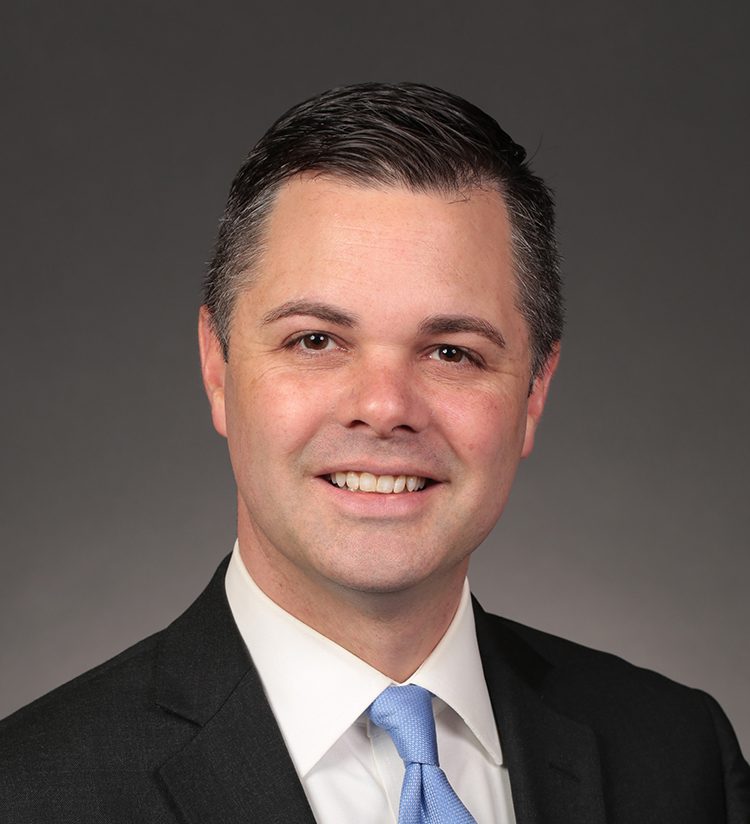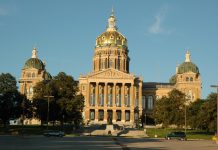Iowans intuitively know today what some of the greatest political thinkers to ever live knew 230 years ago – local politics is about our communities, not partisan division. Our nation’s Founding Fathers wrote in detail on the need to check political parties and factions to keep them from subsuming every aspect of American public life.
In Federalist 10, James Madison helped forged a system to keep partisan politics firmly in-check. Founders allowed for factions to form in circumstances where their malevolence could be tempered by the collective wisdom of individuals acting within a constituency diverse enough to avoid the “superior force of an interested and overbearing majority,” Madison wrote.
Iowans have long agreed with Madison: the “circumstances” of local governments are unique from other legislative bodies in that they cannot possibly benefit from the presence of political parties.
Until recently in Iowa, our state was hailed nationally as having some of the best non-partisan elections, non-partisan redistricting, and non-partisan requirements for candidates running for local office.
In our last elections partisan political entities, particularly by the Polk County Democrat Party, took an absurdly self-serving role to inject their partisanship into non-partisan elections. They aimed to break our non-partisan tradition and engaged in fiery DC-style political attacks, demanded party allegiance from independent candidates, and threw massive amounts of money and political machinery into making our local governments and school boards subsidiaries of national political parties.
Partisans claim this is a “victory” for their party and pledge to engage in ever greater demands for candidates to register for their political affiliation if they want any help in future elections – or more ominously, not to be targeted in the next election. Sadly, any short-term partisan victory in one area of the state will be immediately countered by a loss in another area. Counties, cities, schools will have to define themselves no longer as non-partisan servants to the community, but as “Red” or “Blue” – and they will be expected to vote accordingly.
Iowa has done well to heed the Founders’ advice by allowing parties and partisans where it is inevitable they will emerge — and we have blocked their presence where they have no place.
This is not to say that there is no room for differences of opinion in local elections; it is to say that we do well by not allowing those differences to bubble up in the binary framework of Republican and Democrat designations. This is especially true today, a time when Americans find parties to be the most polarizing and corrosive vehicle through which we conduct politics.
The Hill reports that 83 percent of Republicans, 88 percent of Democrats and 81 percent of all Americans surveyed say they are somewhat or very concerned by divisions between the two parties.
73 percent of Americans said the two parties don’t only disagree about politics and policies, they cannot agree on basic facts either.
Maybe at some point in the future, we can repair the parties’ reputations and make them socially healthier mechanisms for conducting politics.
For now, however, it strikes me as a bizarre and shameful that we would have partisanship forced on our non-partisan elections – making our mayors, school boards, city councils and others pledge political allegiance to the most polarizing elements of American public life.
I have yet to see a single poll or speak to a single local elected official that would indicate a vestige of support for the idea that our towns and schools would be made better if only the Democratic and Republican Parties of Iowa spent more money, time, and politically divisive energy on getting their preferred candidates of their respective party apparatuses into local office.
We must not allow any party to continue this trend, as its consequences on the vitality of Iowa communities will be anything but desirable.
That is why I am introducing legislation, Senate File 207, to prohibit the partisan political apparatus from spending money in any non-partisan county, city, or school board election.
To suggest this somehow infringes on free speech rights is disingenuous, as those making such a claim only seem to care about free speech when they are holding the microphone.
If SF207 becomes law, candidates for every office can continue to run their campaigns focused on their community. Candidates, neighbors, supporters, friends, families, and non-political-party organizations will be unphased, able to spend and talk and shout and write however they feel best represents their views. Partisan politics cannot hijack this well proven process.
This legislation upholds the best-practices and spirit of Iowa. Importantly, it allows local governments to function at least partially outside today’s toxic political fray.
A well-worn phrase in America was “all politics is local.” Today, I am concerned that if we make “all local politics national” by injecting state and national party money into the equation, we will eviscerate the final refuge for civility and local accountability, replacing them with all of the same division and discord we lament about politics at every other level of government.”
In Service,
Zach Nunn (R-Bondurant)
State Senator, District 15
Iowa Senate











